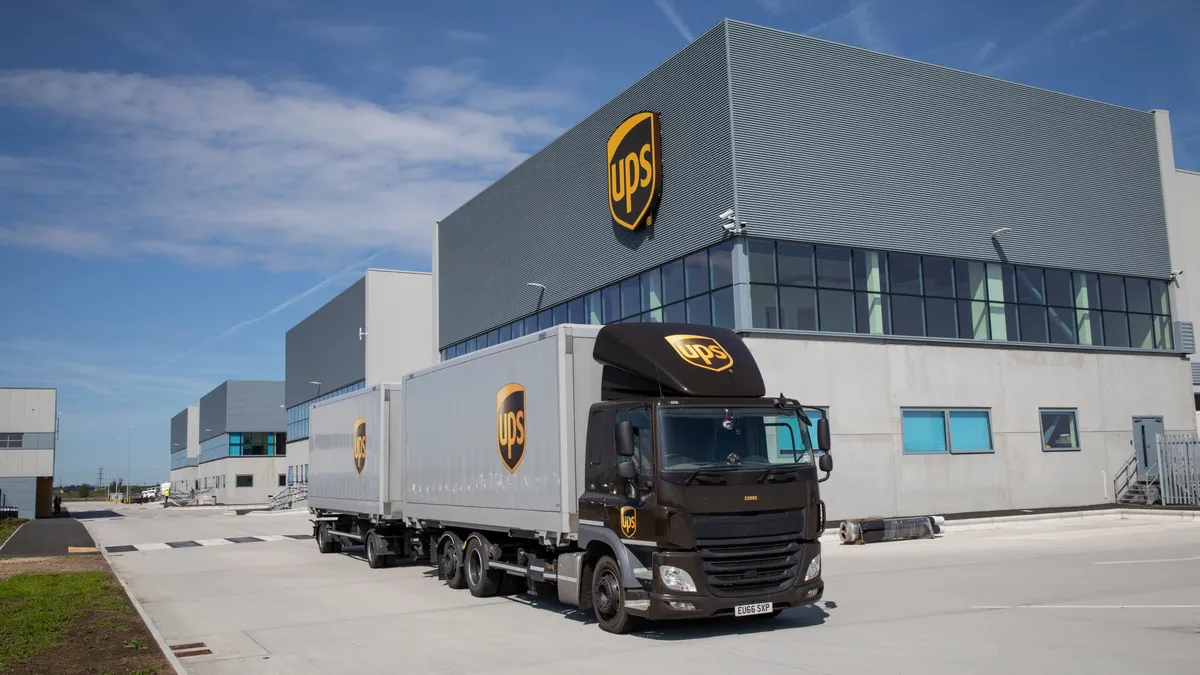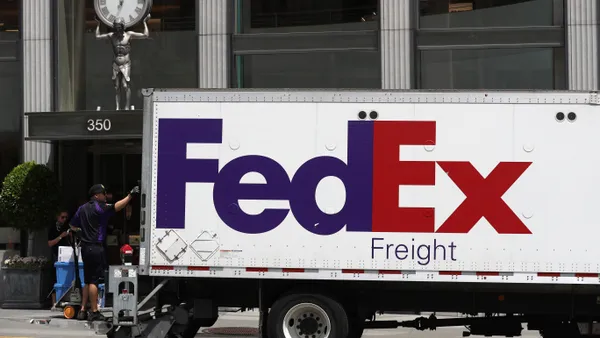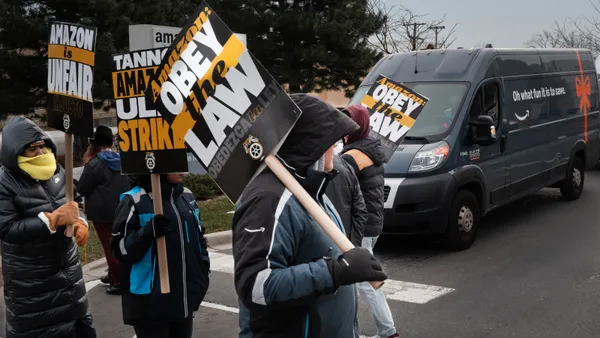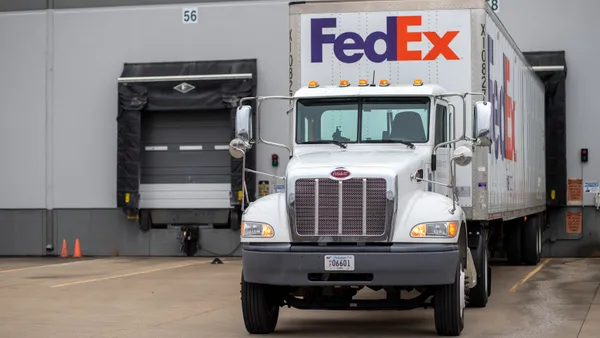Dive Brief:
- UPS announced it's investing $130 million in five new compressed natural gas (CNG) fueling stations and 730 CNG vehicles, a move that will help reduce CO2 emissions and boost the company's renewable natural gas use, according to a press release.
- The initiative will push UPS toward two main sustainability goals: Having one in four purchased vehicles be alternative fuel or advanced technology vehicles, and replacing 40% of ground fuel with energy sources other than gasoline or diesel.
- The company's progress toward alternative fuels comes as diesel and gasoline prices rise significantly, holding the potential to save costs that may be passed along to others in the supply chain.
Dive Insight:
UPS's latest move may not just be about environmental sustainability. With spiking gasoline and diesel fuel costs, alternative fuels may be key to financial stability in the long run.
In part, UPS's initiative has an environmentally-friendly purpose, helping the company achieve its goal of reducing greenhouse gas emissions from global ground operations by 12% by 2025, according to the press release.
But there's a cost-saving benefit, too. Though CNG trucks and fueling infrastructure cost more than their diesel fuel counterparts, UPS believes "in the long run, natural gas will provide lower costs and less fuel price volatility," said Mike Casteel, director of UPS fleet procurement, in an email to Supply Chain Dive. "[In] the short term, the lower fuel costs will offset some of the upfront investment."
The company's fuel expenses increased by $419 million from 2016 to 2017 because of "higher jet fuel, diesel and unleaded gasoline prices," according to its 2017 annual report. Alternative fuel costs also went up, contributing to expenses, but these increases "were partially offset by increased fuel efficiency."
U.S. on-highway diesel fuel prices are $0.755 higher per gallon than they were a year ago, according to the Energy Information Administration. CNG costs increased just $0.01 per gasoline gallon equivalent (GGE) from January to April 2018 and were on average about $0.49 lower than gasoline prices during that period, according to a U.S. Department of Energy report.
"Changing fuel and energy costs may have a significant impact on our operations," the UPS annual report said. "We require significant quantities of fuel for our aircraft and delivery vehicles and are exposed to the risk associated with variations in the market price for petroleum products, including gasoline, diesel and jet fuel."
UPS didn't make its latest decision to incorporate more alternative-fuel vehicles merely because of fuel prices, though, Casteel said.
"Yes, the high cost of traditional fuel can play a part in this, but, UPS continued to invest even when fuel prices were lower over the last few years. We believe it is a good long-term strategy," he said. "Having a diverse mix of fuel, including alternative and renewable fuels to power our fleet, is a sound approach."
UPS isn't the only company investing in this approach. FedEx recently began testing a hydrogen fuel-cell vehicle, and Anheuser-Busch reserved up to 800 hydrogen-electric vehicles from Nikola Motor last month.













